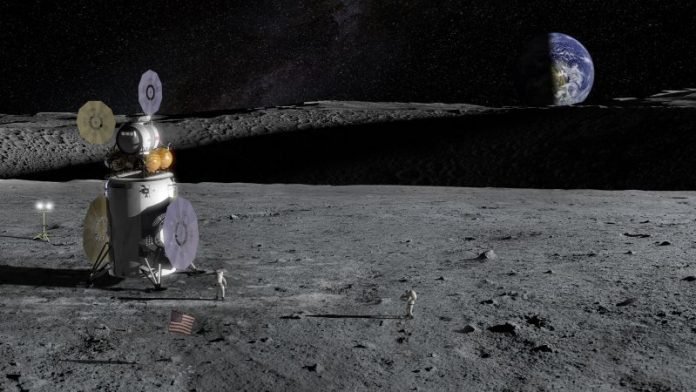
In a recent study, scientists discuss the potential for future lunar settlers to establish a backup data storage system of human activity in the event of a global catastrophe on Earth that could be used to recover human civilization on a post-catastrophe planet.
This comes as NASA’s Artemis missions plan to send people back to the Moon for the first time since 1972, coupled with current global events such as the ongoing coronavirus pandemic and the War in Ukraine, with Russian President Vladimir Putin recently threatening nuclear war.
Given the current state of world affairs, how important is it to establish a type of off-world data backup?
“The COVID-19 pandemic taught us how vulnerable our world is to large-scale disasters because of its growing interconnectivity,” says Carson Ezell, who is an undergraduate at Harvard University, the Director of Space Futures Initiative, and lead author on the study.
“Still, catastrophic risks are neglected in political discourse because they are unexpected and largely unprecedented.
An off-world data backup would be an important step towards improving our ability to recover from a catastrophic disaster, and it would also allow us to recognize our shared human identity and our responsibility and capability to protect it if we make the effort.”
Dr. Alexandre Lazarian, who is a Professor in the Department of Astronomy at the University of Wisconsin-Madison, and a co-author on the study, compares the study’s backup data storage system to that of an airplane’s black box, also known as a flight data recorder, which investigators later use to determine the cause of a plane crash or accident.
“They cannot save the lives of the people on the plane, but they can save lives of people on other planes,” says Dr. Lazarian.
“And in many cases, for example, it was not hardware, it was human error that resulted in the crash.”
Along with Aretmis, the study notes several ambitious human spaceflight missions to both the Moon and Mars, not just from the United States but from China and the private space company, SpaceX, as well, with the researchers hoping to use this opportunity to establish their data backup system.
“Once a lunar base for humans is established, an important priority should be to endow it with a computer system that backs up all the information necessary to reboot life on Earth,” says Dr. Avi Loeb, who is a Professor in the Department of Astronomy at Harvard University, and a co-author on the study.
“This includes the genetic information on all forms of terrestrial life as well as information on all human creations, including books, music, and content of the internet.
The lunar data repository would serve the same purpose as the backup and recovery system on a ‘cloud’ computing and storage provider that I recently purchased for my new computer. On a clear night, the Moon would appear like the ultimate ‘cloud’ for data storage.”
The researchers discuss how advancements in both laser communications and data storage could enable such a system to be established on both the Moon and Mars.
They estimate that the total stored amount of books, journal articles, films, genetic information such as the number of species on Earth and the human genome, and Earth imagery is approximately 1.07 x 1016 bytes of data, and also estimate that all this data can be transferred to a suitable hub within a year or two.
Dr. Lazarian says that the purpose of this backup system is not because we have to be destroyed, but because there’s the possibility that we can be destroyed.
He stresses the purpose of this project is to alert people, particularly politicians, that we are a very vulnerable and fragile civilization, noting that we are in a very dangerous time because we can destroy ourselves.
But what types of risks does humanity really face in terms of its own destruction?
“There are many existential risks for life on Earth, including climate change, a nuclear world-war, pandemics, asteroid impact, the Sun boiling off our oceans and rivers, or an unexpected calamity from a rare astrophysical event like a gamma-ray burst,” says Dr. Loeb.
“The likelihood of any of these phenomena wiping out humanity is highly uncertain, but worth a backup and recovery plan.”
To carry out the data backup plan, the researchers stress the importance of it being an international project, as opposed to single nations contributing to it, as the paper concludes by saying, “International, inter-generational coordination would also enable further initiatives to improve the prospects of the long-term future.”
Dr. Lazarian says one of the most important warnings why humanity is in danger comes from astronomy, as the researchers use this project to discuss the reasons why we possibly haven’t heard from a technological extraterrestrial civilization, stating “the absence of signatures of living civilizations on exoplanets might suggest that civilizations are fragile.”
“It means that civilizations do not live long,” says Dr. Lazarian. “As they get to the stage, the advanced industrial stage, where they can destroy themselves, they do it.”
As always, keep doing science & keep looking up!
Written by Laurence Tognetti.
Source: Universe Today .



